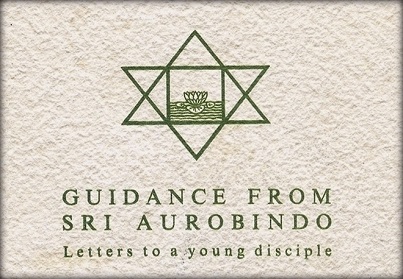
I want to be free of my ego. Is it possible now?
I do not see how you can be free from ego at this stage.
I find it difficult to keep myself free from feeling disgust for X whenever I see him. When I meet him all the wrong actions he has done come up before my memory. How am I to throw away such stupid reactions from my nature?
By having dislike and disgust for nobody — remembering that the Divine is in all.
I do not understand how I manage to forget that once I too did the wrong things even more freely than X.
It is the vital ego that does like that.
Ego is not only common in man, it is universal.
What is the place of individuality in our Yoga?
There is a spiritual individuality in each person which develops with the development of the consciousness in sadhana.
But what happens in the course of the sadhana to the other — non-spiritual — individuality which is already there in us?
What individuality? If you mean the ego it has to disappear and be replaced by the true individual.
If we were conscious surely we would find that the source of all extra capacity of ours lay in the Divine, and that we were mistaken in appropriating it.
Obviously. It is Nature, Prakriti, that expresses itself in the capacity — the ego is only an instrument of her workings.
If the Purusha separates itself from the Prakriti, will the ego disappear by itself?
Not at once, but it is the first step for the disappearance of the ego.
After taking something from the universal consciousness one returns to his individual being. Can that something now be called one’s own?
You can consider anything you like as your own, if you look at it from the egoistic point of view.
It is of course from Nature that the artist receives his faculty. But afterwards it is he who develops it and tends it. What has Nature got to do with it then?
You might just as well talk of the electricity in a dynamo belonging to the dynamo and not to Nature. All is Force of Nature. You cannot breathe or think or move without Nature breathing or thinking or moving in you.
What is it in us that makes demands?
It is a sentimental demanding part of the vital ego which makes demands and when they get no answer become despondent, revolted or miserable. If it gets an answer, even then it likes to think that it has not got one or that the answer was not sufficient or finds some other cause for being despondent, revolted or miserable.
Something in it enjoys the play of it, as one enjoys a drama.
Is that ego to be rejected outright? Or is it to be transformed so that it demands nothing but only gives itself to the Mother?
The ego has to be thrown out — it is the true vital being that gives itself to the Mother.
H told me, as one goes on progressing higher and higher one’s ego tends to become greater and greater till the Overmind is reached. Is that so?
Not if one takes care to lose the ego on the way.
From a friend of mine I learnt indirectly that my nature is egoistic. How is it? You never pointed it out to me?
You were egoistic, but that is so common that I did not know I had to point it out. There are very few who are not or were not like that.
Could you kindly explain what is meant by “drawing energy from others”?
That is what the vital often or usually does if it is egoistic. People are always drawing forces from those around them, but they give also. But the vital ego tends often to draw without exchange, then there comes the drain.
Studying my own nature a little deeply, I observe that it is very difficult to catch the ego before it prints its colour even on our surrender to the Divine.
It has been accustomed to do that always, so it has the strength to continue. The old action of the Prakriti continues even after mental rejection until it is either exhausted or rejected by the vital itself.



About Savitri | B1C3-11 Towards Unity with God (pp.31-33)